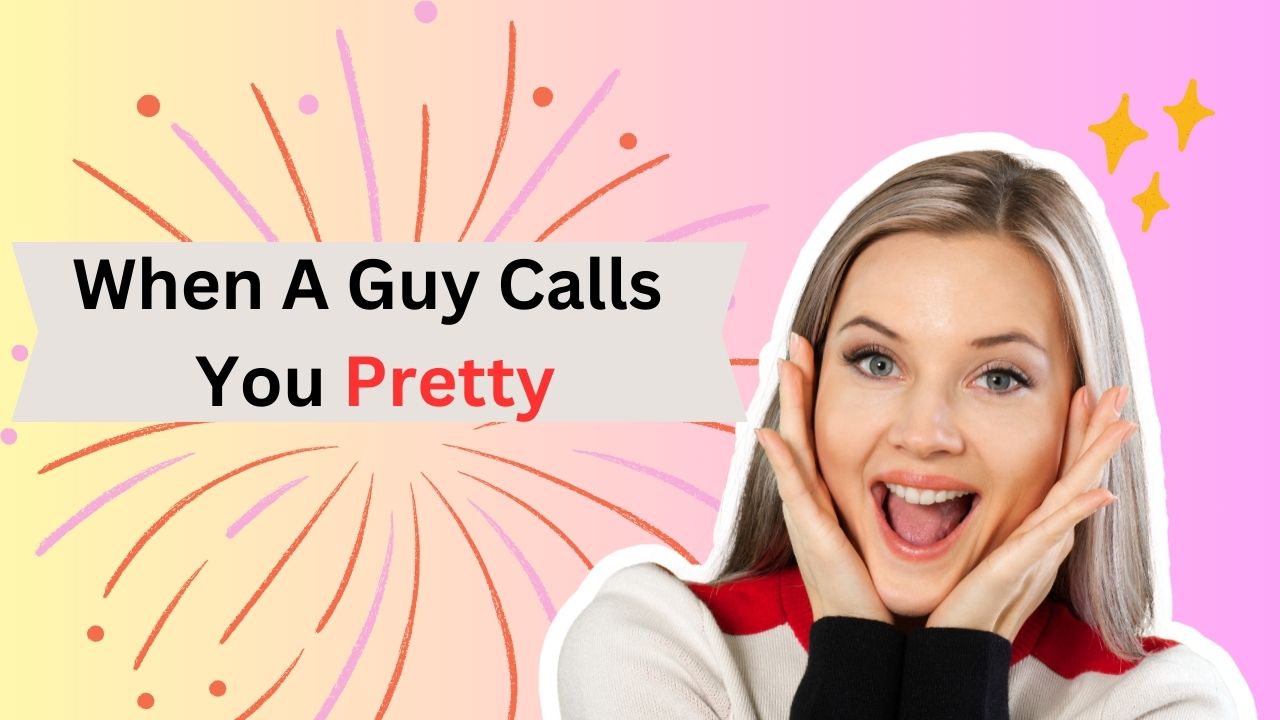
When a guy calls you pretty, it can carry various meanings depending on the context and the guy himself.
It’s essential to consider the dynamics of your relationship and the individual’s personality.
What Does it Mean When A Guy Calls You Pretty?
For some guys, calling someone pretty might simply be a polite compliment, akin to saying “hello” or “nice to meet you.”
They might not necessarily have romantic intentions but are just acknowledging your appearance in a positive way.
In these cases, it’s more about being friendly or polite rather than expressing deeper feelings.
However, in many cases, when a guy calls you pretty, it does suggest a level of attraction or interest.
It could mean he finds you physically appealing and enjoys your company.
It might also indicate that he’s trying to flirt or show romantic interest in you.
In these situations, his words are likely accompanied by other behaviors, such as lingering eye contact, compliments on your personality, or attempts to spend more time with you.
But it’s crucial not to jump to conclusions solely based on a compliment.
Some guys are naturally expressive and might use terms like “pretty” casually without intending to convey romantic interest.
Additionally, cultural and personal differences can influence how people interpret and express affection.
To truly understand what it means when a guy calls you pretty, pay attention to his overall behavior and how he treats you.
Look for consistent signs of interest, such as initiating conversations, making plans to hang out, or showing genuine concern for your well-being.
Ultimately, actions speak louder than words, so observe how he behaves around you to gauge his true intentions.
And remember, it’s always okay to communicate openly and directly with him if you’re unsure about his feelings.
The Power of Validation:
We’ve all experienced that rush of confidence when someone acknowledges our appearance in a positive light.
Research in psychology confirms that receiving compliments, especially about our physical appearance, can provide a significant boost to our self-esteem.
When someone calls you “pretty,” it’s like a validation of your attractiveness, reinforcing your sense of self-worth and confidence.
- A Study by Dove: One notable study conducted by Dove found that 80% of women agree that every woman has something about her that is beautiful, yet only 4% of women around the world consider themselves beautiful. This discrepancy highlights the importance of external validation in shaping our self-perception. Compliments like being called “pretty” can bridge the gap between how we see ourselves and how others see us, fostering a more positive self-image.
Decoding “When a Guy Calls You Pretty” Quiz
How To Respond When A Guy Says Your Pretty
Flirty and Playful:
“Aw, thanks! You’re not too bad yourself ;)”
This response keeps things light and flirty, implying reciprocity and a potential mutual attraction.
Bashful and Humble:
“Oh stop, you’re making me blush!”
This shows humility while also acknowledging the compliment, adding a touch of charm.
Acknowledging Effort:
“Well, I did spend an extra five minutes on my hair today!”
By mentioning the effort put into grooming, it acknowledges the compliment while also subtly highlighting personal care routines.
Confident and Affirmative:
“Thanks! I’ve been feeling really good about myself lately.”
This response exudes confidence and self-assurance, which is always attractive.
Open to Further Interaction:
“You’re too kind! Want to grab a coffee sometime?”
Expressing gratitude for the compliment while also indicating openness to further interaction, possibly suggesting interest in getting to know the person better.
Valuing the Compliment Source:
“Wow, coming from you, that means a lot!”
Acknowledging the significance of the compliment giver’s opinion can deepen the interaction and flatter the other person.
Emphasizing Confidence:
“Thanks! It’s all about confidence, right?”
Highlighting the importance of confidence not only accepts the compliment but also reinforces positive self-image.
Expressing Gratitude:
“Aww, you just made my day!”
Simple yet sincere, expressing appreciation for the compliment and its impact.
Credit to Personal Care Routine:
“Thanks! I’m glad all that skincare routine is paying off!”
By attributing the compliment to a skincare routine or any self-care practice, it acknowledges effort and dedication to personal grooming.
Gratitude to Influences:
“Well, I did learn from the best – my mom always told me beauty comes from within!”
Acknowledging the influence of others, such as family or mentors, adds depth to the compliment response while also reflecting on inner beauty.
Sincere Appreciation:
“Thank you! That really means a lot to me.” Expressing genuine gratitude can deepen the connection and convey sincerity.
Reflecting on Inner Qualities:
“Thanks! It’s not just about looks though, right? Kindness matters too.” Acknowledging the importance of inner qualities while accepting the compliment can show depth of character.
Light-hearted Banter:
Oh, stop it, you’re making me blush! But seriously, thanks!” Injecting a bit of humor into the response can make the interaction more playful and enjoyable.
Encouraging Self-love:
“Thanks! I’ve been working on loving myself more, so I really appreciate that.” Taking the opportunity to promote self-love and acceptance can inspire positivity in both parties.
Sharing the Credit:
“Thank you! My friend helped me pick out this outfit, so I’ll let her know you approve!”
Acknowledging the contribution of others, like friends or family, can foster a sense of community and appreciation.
Responding with a Smile:
“Thanks! Your compliment just made my day brighter.”
Expressing the impact of the compliment with a smile can enhance the warmth of the response.
Acknowledging Diversity:
“Thank you! Beauty comes in all shapes, sizes, and colors, so I appreciate you noticing.”
Celebrating diversity and inclusivity while accepting the compliment can promote positive body image and self-acceptance.
Encouraging Compliment Culture:
“Wow, thank you for saying that! It’s always nice to spread a little positivity.”
Encouraging a culture of giving and receiving compliments can contribute to a more uplifting and supportive environment.
Encouraging Reciprocity:
“Thank you! You’re pretty awesome too, you know.”
Encouraging reciprocity by returning the compliment can foster mutual appreciation and rapport.
Focusing on Personal Growth:
“Thanks! I’ve been working on feeling more confident in my own skin, so I really appreciate your kind words.”
Acknowledging personal growth and progress while accepting the compliment can inspire self-reflection and positivity.
Adding a Dash of Mystery:
“Thanks! Maybe it’s the magic of a good night’s sleep, or maybe it’s just good lighting!”
Adding a touch of mystery or humor to the response can keep the interaction light-hearted and intriguing.

As a married wife, founder, and editor of SpouseMag.com – these guides are based on my own personal experiences, observations, research and insights. I am transparent about being inspired by the life and work of the two greatest experts in the relationship space – Dr. John and Julia Gottman, and Harville and Helen. They two are some of the strongest couples, researchers, authors, and counselors when it comes to marriage and relationships. My advice and guides are based on my insights and research, and they are not an alternative to professional advice.
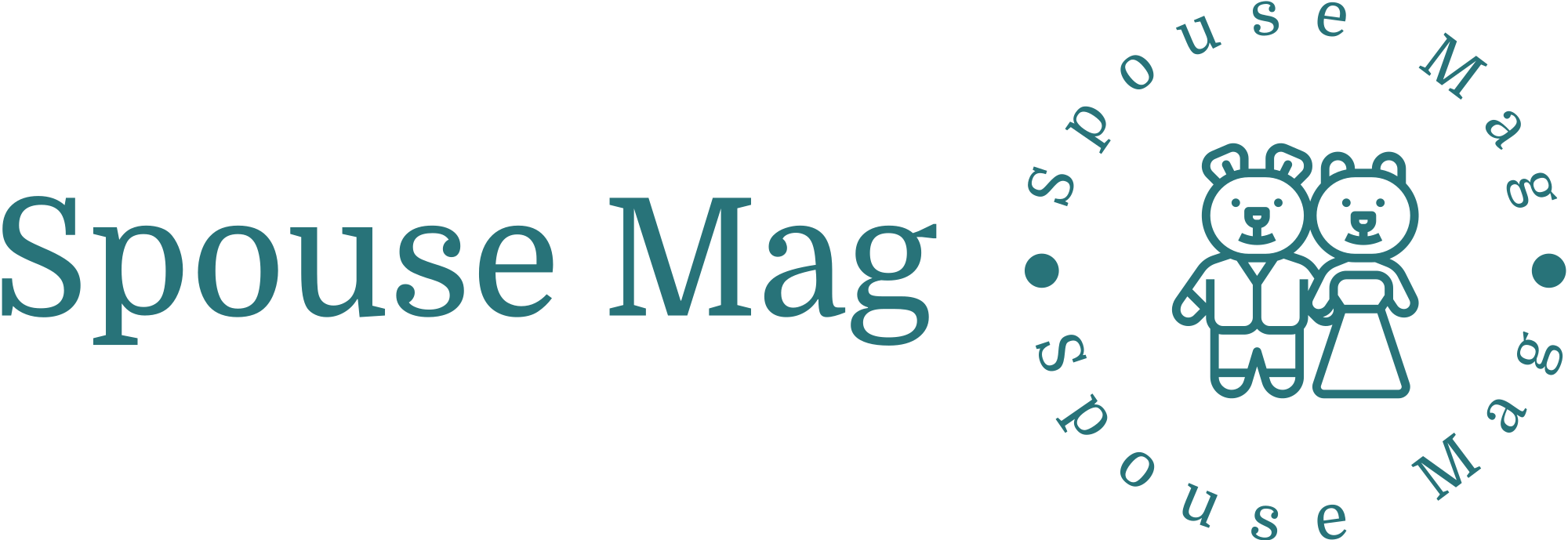
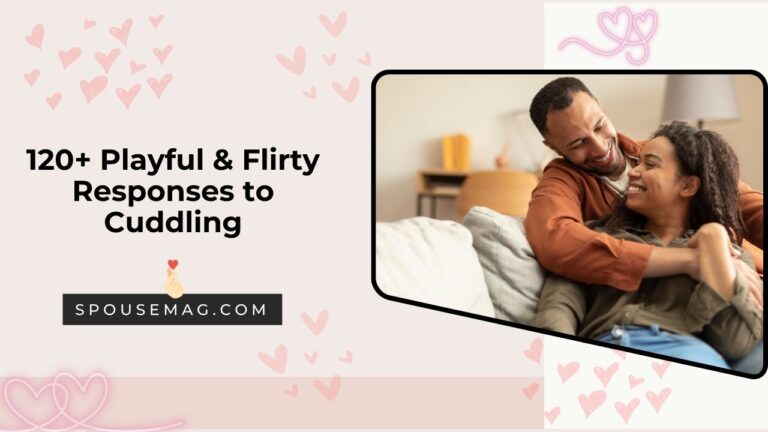

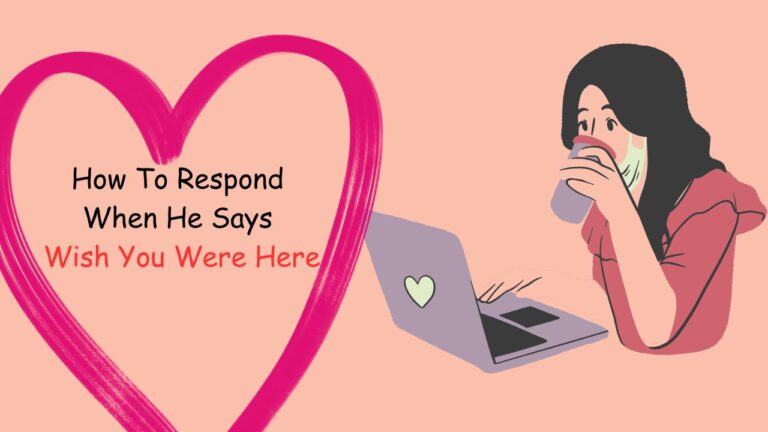
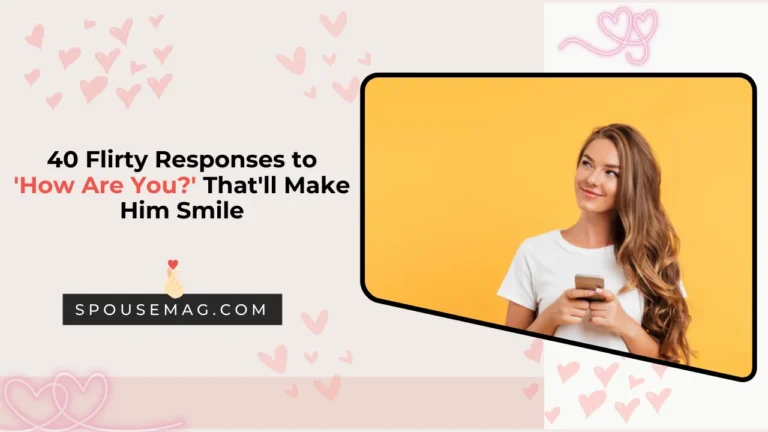

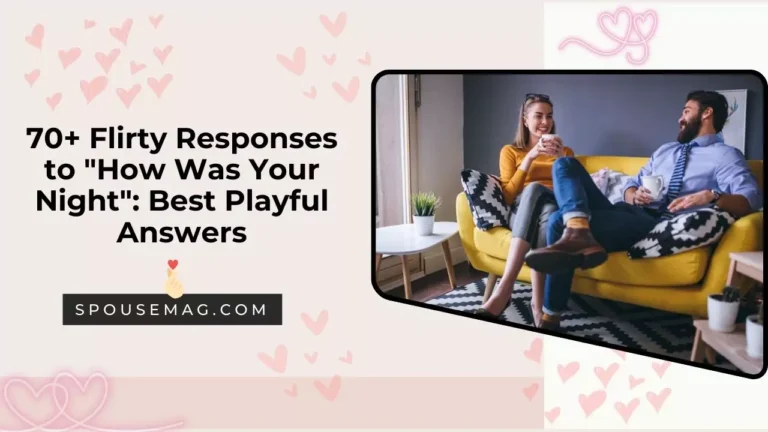
I think this is one of the most significant info
for me. And i am glad reading your article. But want to
remark on few general things, The web site style is
perfect, the articles is really nice : D. Good job, cheers
Wow, this article really simplifies things! I appreciate how it breaks down the different meanings behind a guy calling you pretty. It’s so true that context matters, and it’s not always a clear-cut sign of romantic interest. Understanding these nuances can help avoid misunderstandings.
Thank you, Diana! I’m glad you found the breakdown helpful. Indeed, interpreting compliments can sometimes be tricky, and considering various factors can provide a clearer understanding of someone’s intentions. Context is key!